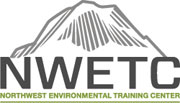Description: **Note - This course is now offered exclusively using live stream remote attendance. You will need a computer and an internet connection. We will continue to monitor the situation surrounding COVID-19 closely. When it is deemed safe to reconvene group gatherings, we will resume our in-person class offering as usual. If you would like more information or have any questions, please contact us via email or phone 425 270 3274. Tribal Environmental Regulation and Jurisdiction is a two-day course on environmental regulation and jurisdictional issues on and effecting Indian Reservations. Key issues explored include: when do tribes have regulatory authority over whom and what on reservation; the interplay of tribal sovereignty and ordinances, federal law and when state and local laws may apply. After an introduction of the historical underpinnings of Federal Indian law and a basic overview of inherent authority of tribal governments and delegation of federal authority, the discussion shifts to the protection of air and water quality, waste management, the environmental review process and the intersection of land-use and environmental regulation on Indian reservations. The course also explores tribal federal reserve water rights, treaty hunting and fishing rights and the relationship of these rights to environmental protection and natural resource management. The course ends with a section on climate changes issues and how they may be addressed on reservation through regulatory tools. "Very focused on practical issues and good balance of history and present day realities." B. Dam "I really enjoyed getting a basic introduction to Indian regulation...his examples were all relevant...Mr. Andrews was able to make this easily understandable for someone with no prior knowledge of the subject matter." B. Davis |
*Registration: Reduced tuition for employees of Native American tribes, government agencies, nonprofits, students and NAEP, NEBC, NWAEP members. You may register online or by calling the Northwest Environmental Training Center at 425-270-3274.
Intended Audience: - Tribal environmental staff to improve their knowledge of environmental regulatory roles, powers and options.
- Tribal leadership who want to better understand their power and sovereignty within the context of environmental protection.
- State, local and federal regulatory officials to improve their understanding of the boundaries of jurisdiction and how to work with tribes.
- Attorneys with interest, but little experience in Indian Law.
- Others who wish to better understand how to work in Indian Country or with tribal environmental regulations.
Continuing Education Units: 1.30 CEUs
Course Topics
Day I - Introduction - Basic Federal Indian Law - Inherent Authority of Tribes - Delegation of Federal Regulatory Authority - Water Quality Regulation - Air Quality Regulation Day 2 - Hazardous Waste and Cleanup - Environmental Review – NEPA, TEPA and ESA - Land Use Regulation and the Environment - Treaty Hunting and Fishing Rights - Tribal Water Rights and the Environment
About the Instructor
 Scott A. Andrews serves as co-founder of Asarum Consulting, which provides policy and technical assistance on Tribal environmental regulation, assessment and compliance, as well as, climate change issues. As Environmental Compliance Manager for the Swinomish Tribe from 2001 to 2020, Mr. Andrews’ responsibilities spanned environmental regulation and enforcement and the development of related policies and ordinances. He also managed shoreline protection, air quality and hazardous waste programs. He served as one of the lead authors of the Swinomish Climate Change Initiative, an award winning project hailed as the first major tribal climate change adaptation plan in the nation. Over his career, Scott’s professional experience has included a variety of positions for governmental and non-profit organizations, including Legal Counsel for the Natural Resources Committee of the Nebraska Legislature and the Kansas State Director for Sierra Club. Mr. Andrews holds a Master’s in Watershed Management /Forestry, a law degree and is a member of the Washington State Bar Association. As a Peace Corps Volunteer in Fiji he developed a village aquaculture program. Scott lives and works on the ceded lands of the Coast Salish Peoples. To fulfill his creative side, he writes and produces plays for the stage.
What to Bring
Pen or pencil, and a pad of paper to take notes. In person courses will have drinks and snacks provided as current health recommendations allow, but lunch will be on your own.
Billing Information
In order to guarantee a space in a course, the tuition must be paid in full TWO WEEKS before the first day of the course by either check or credit card. State and government agencies paying with a purchase order are allowed payment under the two-week time frame if a copy of the purchase order is received by NWETC.
If You Need to Cancel
Cancellations*-
With 31 or more days notice, we will offer a 100% refund or credit towards a future course. The credit is good for one year and may be applied to any course.
- With 30-8 days notice, we will offer a course credit towards a future course. The credit is good for one year and may be applied to any course.
- With fewer than 8 days notice, there is no course credit available
*Please note that attendee replacement is welcome at any time
Disability Accommodations
Disability Accommodations:To request disability accommodations, please contact us at info@nwetc.org or 425-270-3274 at least 30 days prior to the event.
|










